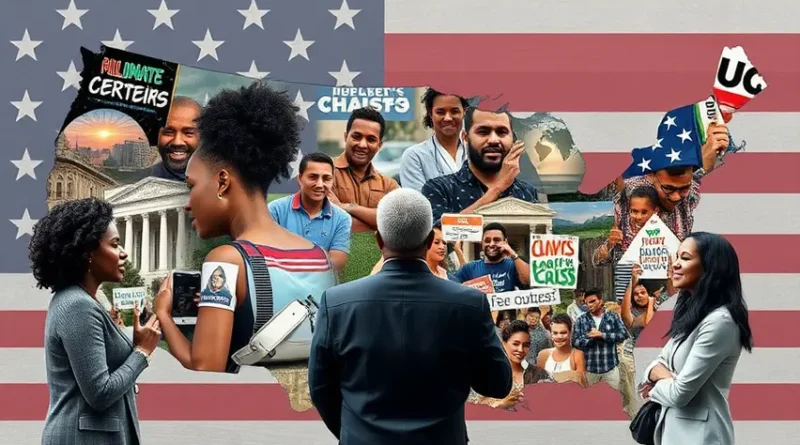Current Issues in the United States: Navigating Challenges and Opportunities
The United States, a nation built on the ideals of freedom and democracy, faces a multitude of challenges in today’s complex geopolitical landscape. Understanding the current issues is crucial in fostering a well-informed citizenry. From social justice movements to economic anxieties, the U.S. is seeing a combination of old problems resurfacing and new issues emerging.
One of the most talked-about issues today is the ongoing struggle for racial equality and social justice. The Black Lives Matter movement, ignited by incidents of police brutality, has gained international attention and sparked conversations about systemic racism. This movement highlights the need for comprehensive reforms, not only within police departments but across all layers of society. Many communities are calling for changes that address equality in access to education, healthcare, and job opportunities.
Healthcare remains a prominent issue in the United States. The COVID-19 pandemic has strained the already fragile healthcare system. Although the Affordable Care Act expanded coverage, millions remain uninsured or underinsured. Discussions about universal healthcare are becoming increasingly mainstream, as Americans recognize the vulnerabilities in the current system. Controversies surrounding vaccination efforts and misinformation further complicate the healthcare landscape.
Climate change has emerged as another pressing concern. With increasingly severe weather events, wildfires, and rising sea levels, the effects of climate change are felt across the nation. Many Americans now advocate for greener policies and sustainable practices. The recent push for environmental justice underscores the connection between climate change and social equity, as marginalized communities often bear the brunt of environmental degradation.
Economic inequality continues to be a thorny issue in the U.S. The wealth gap between the ultra-wealthy and the working class has been widening, leading to serious societal ramifications. The issue of raising the federal minimum wage has become a central point of debate, with advocates arguing for a living wage that keeps up with inflation. Additionally, the gig economy has created new dynamics in labor relations, raising questions about workers’ rights and benefits.
Gun violence also remains a significant issue, with mass shootings becoming alarmingly frequent. The debate surrounding gun control measures is contentious, with advocates pushing for stricter laws while others defend the Second Amendment. This ongoing struggle highlights public safety concerns and the need for a balanced approach to legislation.
Polarization in politics is perhaps one of the most pervasive issues affecting the U.S. today. The divide between political parties has intensified, leading to gridlock and inefficiency in governance. This polarization trickles down into society, affecting personal relationships and community cohesion. Civility in political discourse is dwindling, making it challenging to find common ground on crucial issues.
Lastly, immigration reform remains a contentious topic. The U.S. has long been seen as a land of opportunity, yet current policies have left many in limbo. The dreamers, undocumented immigrants brought to the country as children, are in a precarious position. Comprehensive immigration reform that addresses the needs of those who contribute to society while ensuring border security is crucial for a balanced approach.
In conclusion, the challenges faced today by the U.S. are numerous and multifaceted. By recognizing and addressing these issues, Americans can work together toward a more equitable, just, and prosperous future. Engaging in thoughtful discussions, advocating for change, and voting for policies that reflect shared values will be integral to navigating these complex times.

